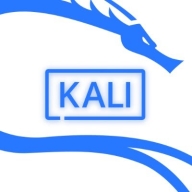

Windows 10 and Kali Linux compete in the operating systems category. Windows 10 seems to have the upper hand in user-friendliness and support, while Kali Linux excels in cybersecurity tools and cost-efficiency.
Features: Windows 10 supports a wide range of applications, features a user-friendly interface, and offers extensive customer support. Kali Linux offers specialized tools for security testing, is optimized for cybersecurity, and is open-source.
Room for Improvement: Windows 10 needs better system updates, improved resource management, and general software productivity enhancements. Kali Linux has a steep learning curve, occasional stability issues, and needs better user accessibility and stability.
Ease of Deployment and Customer Service: Windows 10 has a streamlined deployment process and excellent customer service. Kali Linux requires more technical knowledge to deploy and has limited customer support.
Pricing and ROI: Windows 10 has a higher upfront cost but provides good ROI with long-term use and support. Kali Linux has minimal setup costs due to being open-source and offers high ROI for cybersecurity professionals.
Integrating Kali Linux with DevOps tools has resulted in reduced operational costs due to automated test cases, making it a worthwhile investment with significant returns by decreasing the attack surface area and the frequency of attack incidents.
If we had installed it on-premises or through other means, it would have incurred significant money and effort to create the VMs, deploy it on machines, and then delete and format it after use.
I have saved time by avoiding the lag I sometimes face on the TryHackMe in-built machine, and I have learned more efficiently.
Since most of the tools and other things are community-based, the documentation and other community support are very good.
I was able to solve the problems I was experiencing.
We have informed Microsoft, but the issue is still there, and it has been more than three to four months.
The customer service and support from Microsoft are quite responsive and generally good.
The Office 365 support is good, it takes a while sometimes to point to the problem, but they're good.
You can use it on cloud, VPS, and on-premises.
I would describe Kali Linux's scalability as very scalable because I can deploy it on a range of different machines, whether that is my laptop or using maybe Raspberry Pi or Android.
Regarding the scalability of Kali Linux for my work and projects, whenever I was conducting brute force attacks and provided more than two or three million lines of payload, the system would freeze.
We can focus fully on our work without pressure or concerns about issues on our own PCs.
For scalability, I would rate it a nine or ten because performance-wise, Windows 10 has never given me those issues.
I can increase the licensing amount easily when there is company growth or when new people join.
Due to the huge user base that uses it, it is kept up to date regularly.
Kali Linux is stable for my use cases, though not the latest version.
Kali Linux is very stable for my needs.
The challenges were related to third-party agents and their supportability.
Windows 10 is stable for my daily development work, providing frequent security updates and user-friendly updates, which are excellent.
I would rate the stability of the product an eight.
If real-time customized port scanning can be added, for example, instead of a default port such as 8080 or 443, if we can use a customized port such as 9876, that capability would be great.
I face significant challenges with Kali Linux regarding a major issue with the Grub loader becoming corrupted, which makes it very difficult to recover data.
If there were video courses attached to how to safely use it, especially for absolute beginners with no previous experience using Linux operating systems, I think that could be very useful.
Microsoft can improve their Teams product because everybody uses Teams, and it's very clunky and unfriendly in terms of scrolling back, downloading files, and moving back and forth within the different teams.
Investment in Windows 10 may not be ideal as the world is changing with advancing technology in the AI age.
The transitions within Teams are not smooth, and call quality in meetings is not great.
Kali Linux is free software, an operating system that's available to download without any cost or licensing fees.
I simply create a VM, so there are no costs involved.
My experience with pricing, setup costs, and licensing for Kali Linux has been positive, as it operates under an open-source model.
For those buying a Windows license, it might be better to buy a Windows 11 license.
Windows is considered overpriced, especially given the normal software functionalities.
Windows 10 is cost-effective when compared to other competitors available such as Mac and Linux.
Kali Linux has positively impacted my organization by improving efficiency in penetration testing; its open-source nature permits extensive customization and inclusion of numerous comprehensive pre-installed tools, contributing to a secure network environment with effective monitoring of network applications.
A unique and really helpful feature of Kali Linux, compared to other operating systems, is that many of the offensive security tools are already pre-configured and pre-installed.
Kali Linux positively impacts my organization by allowing us to monitor changes and security posture for the company.
When using mapping software such as QGIS or ArcGIS, the system remains stable, especially when handling heavy files.
Device encryption is a main priority for us as developers in a FinTech company because we have the most secure user data.
The configuration management tools, such as SACM, are effective.
| Product | Market Share (%) |
|---|---|
| Kali Linux | 3.5% |
| Windows 10 | 3.0% |
| Other | 93.5% |


| Company Size | Count |
|---|---|
| Small Business | 10 |
| Midsize Enterprise | 2 |
| Large Enterprise | 16 |
| Company Size | Count |
|---|---|
| Small Business | 125 |
| Midsize Enterprise | 64 |
| Large Enterprise | 120 |
Kali Linux is widely used by organizations for penetration testing, vulnerability assessments, web application security, network audits, ethical hacking, and open-source intelligence, providing extensive free features.
Organizations run Kali Linux in virtualized environments alongside other operating systems, employing tools for automated scans, malware identification, infrastructure testing, and application development or hosting. These users benefit from lower maintenance requirements and a smaller footprint. The toolset includes Nmap, SQLMap, Metasploit, and Hydra, ensuring effective security assessments. Its high scalability, performance, user-friendly interface, and extensive documentation enhance the platform's usability. Known for stability, flexibility, and virus resistance, Kali Linux supports web security, troubleshooting, and configuration tasks comprehensively.
What are the most important features of Kali Linux?
What benefits and ROI should users look for in reviews?
Kali Linux can support industries in improving security through stable and flexible environments that resist viruses and provide extensive documentation. Users employ it for web security, troubleshooting, and configuring capabilities. Necessary improvements include automation, user-friendliness, and integrating AI and blockchain. Enhancements in security features, faster installations, and better learning tools are also essential. Machine learning integration and non-enterprise user functionalities can address current limitations.
Windows 10 is one of Microsoft’s most advanced operating systems for personal computers (PCs), tablets, and other similar devices. To date this operating system is active on more than 1.3 billion personal computers worldwide.
Windows 10 has many features that make it arguably the most popular operating system for PCs on the planet. Included in these are a wealth of security features designed to stop malware from compromising both devices and networks. It has integrations for various multifactor authentication as well as non-password-reliant login technologies such as iris scanning. These keep networks safe from the moment that a user logs in. It also has security tools which not only identify, isolate, and remove threats, but also limit the damage that they can cause.
Benefits of Windows 10
Some of the benefits of using Windows 10 include:
Reviews from Real Users
The Windows 10 operating system stands out from the competition for a number of reasons. Two major ones are its ability to secure users from digital threats and its main app management screen, which gives users the ability to easily manage their applications.
One PeerSpot user who is the founder, president, and COO at an analyst firm, noted Windows 10’s impressive security suite when they wrote, “My impression is that the security via Windows Defender is good enough that I no longer feel a need for another third-party security solution, which had always been the case in the past. I think that perception still holds true.”
Mike K., a collaboration specialist at a comms service provider, takes note of the main app management screen when he writes, “I like the main window pane where you can sort your mostly used and different types of apps, such as OneDrive, Google Chrome, and Access. I can just open up the main window, and those apps are right there at my fingertips.”
We monitor all Operating Systems (OS) for Business reviews to prevent fraudulent reviews and keep review quality high. We do not post reviews by company employees or direct competitors. We validate each review for authenticity via cross-reference with LinkedIn, and personal follow-up with the reviewer when necessary.